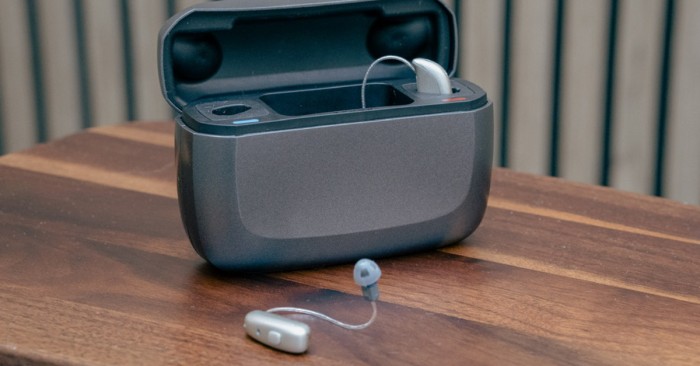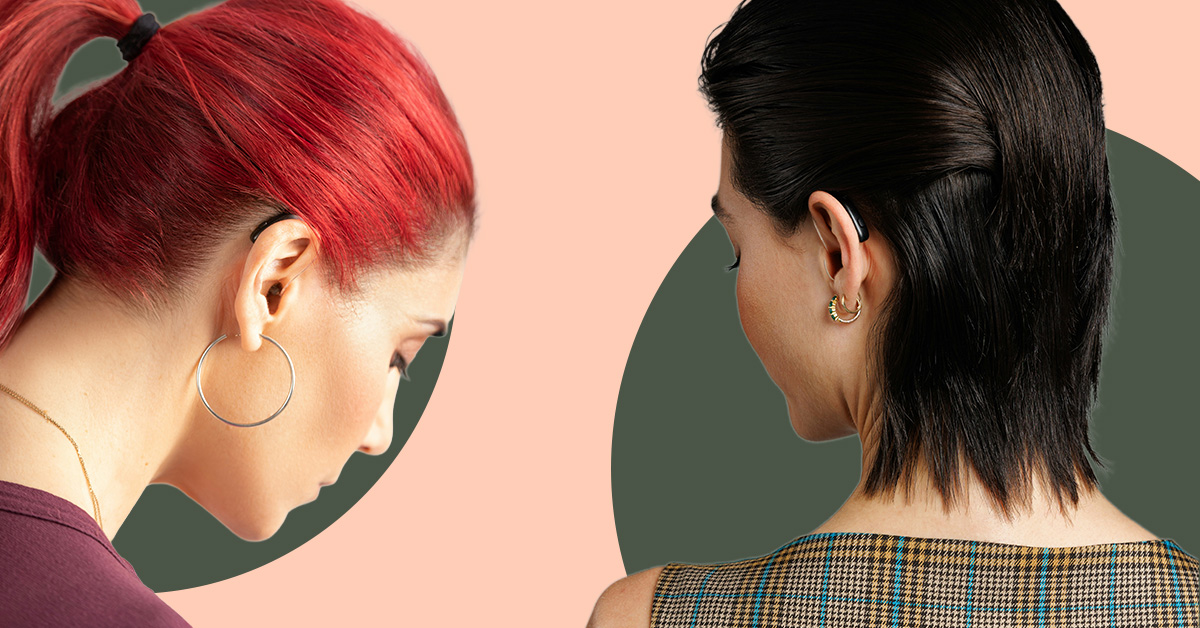The Truth About Being “Too Young for Hearing Aids”: 7 Things People Say and What They Really Mean
If you work in hearing care, you start to notice a pattern.
Most people don’t walk in saying, “I think my hearing’s going and I’d like some hearing aids please.”
They walk in saying, “It’s not me, people just mumble these days.” or “I’m too young for hearing aids.”
We hear the same handful of phrases every week. They all come from smart, capable people and often a lot younger than you’d expect.
The short video below captures them perfectly.
Table of Contents
“My hearing’s not that bad. I’m too young for hearing aids.”
We hear this one all the time.
The truth is, hearing loss isn’t about age. It’s about how much sound your brain is missing and how much effort it takes to keep up.
People in their forties and fifties are some of the quickest to adapt because the brain’s still sharp and flexible. The earlier you act, the more natural everything sounds.
“I just need people to stop mumbling.”
Everyone says this at first. The sound reaches your ears, but your brain’s missing the detail, especially the crisp high frequencies of speech.
When we fine-tune hearing aids, it’s not to make things louder. It’s to restore those subtle sounds that make words click into place. Once you hear them again, you realise it was never about mumbling.
“Won’t they make everything sound weird?”
For a few weeks, yes they will. Sometimes a bit longer dependent on how long you have lived with untreated hearing loss. Then your brain catches up once you’ve tricked it into your new normal.
We tell people it’s a bit like getting new glasses, at first, everything feels too sharp, then suddenly you can’t imagine going back. Most people adapt very quickly provided they wear them!
“Aren’t they still those big beige things behind your ears?”
Not anymore. Modern hearing aids are small, colour-matched and smart.

You can take a call, stream music or watch TV straight through them. Most sit so neatly that your friends won’t notice, until they realise you’re hearing them properly again.
“My friend bought some online for a hundred quid.”
That’s the difference between buying sound and restoring hearing.
Online devices amplify everything, cutlery, footsteps, traffic, and have no professional tuning behind them. Ours are calibrated to your exact hearing test, then adjusted until speech feels effortless. The real value is the care around the technology.
“Do I have to wear them all day?”
You won’t have to. You’ll want to.
Once people get used to clear hearing again, silence feels odd. It’s not about commitment, it’s about comfort.
“What happens if I ignore it?”
Your brain works overtime to fill in the gaps, and that effort quietly drains you.
You stop joining conversations, avoid noisy places, and social life starts to shrink. Acting early protects the part of your brain that keeps you connected, that’s the real goal.
People who develop hearing problems during mid-life (aged 40–65) have an increased risk of developing dementia. So treating it early, can keep your brain healthy.
What Happens at an Alto Hearing Assessment
We take our time. A Complete Hearing Assessment isn’t rushed or salesy, it’s an hour and a half of focused care. You’ll see your results explained clearly, not hidden behind jargon, and leave knowing exactly what’s happening and what can be done.
Book your Complete Hearing Assessment
Clinics in Kenilworth • Lutterworth • Market Bosworth • Clitheroe
FAQ
How do I know if I’m too young for hearing aids?
If you notice effort e.g. leaning in, guessing words, or avoiding certain situations – it’s time to check. Hearing loss doesn’t wait for retirement.
Do hearing aids just make things louder?
No. Good hearing care is about clarity, not volume. The devices are tuned to your hearing pattern so speech feels natural and relaxed.
How long before they feel normal?
Usually between a few weeks to a few months. We fine-tune gradually so your brain adjusts without overwhelm.
Why not just buy them online?
Because hearing is personal. Without testing, fitting and aftercare, most cheap devices end up in drawers. Real results come from expert adjustment.
Why fix it early?
Early treatment keeps your brain sharp, reduces listening fatigue and protects memory and mood. Waiting only makes the adjustment harder later.
The Latest
Damped ear hook: why there’s a mesh inside your hearing aidDiabetes and hearing loss: the overlooked link, early signs and when to get testedWhen healthcare is hard to hear, people get hurtHearing Aid Insurance: Do You Need It, and What Cover Actually Works?Auracast Explained: 5 Real-World Benefits for Hearing Aid Users

